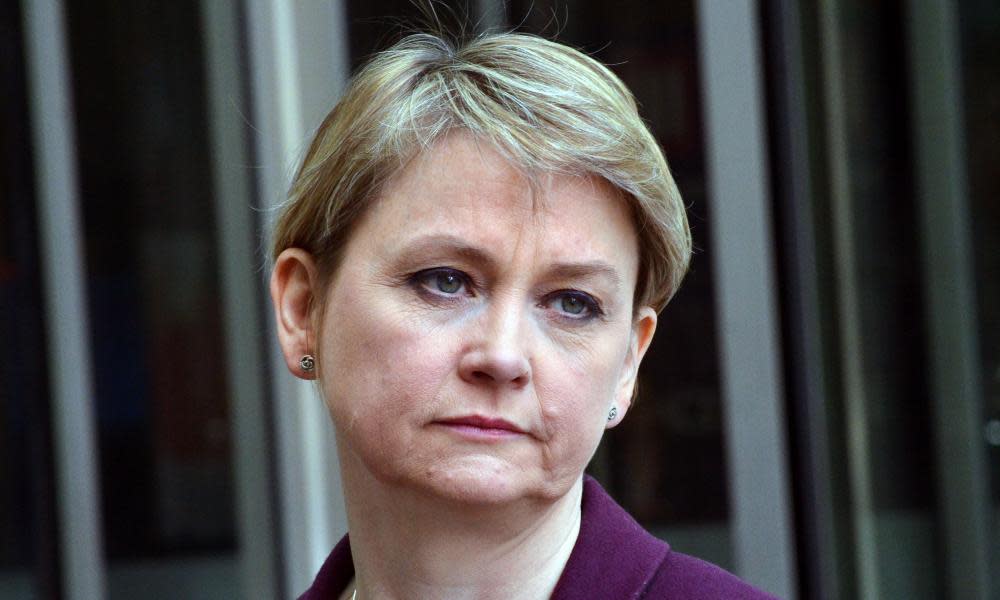Face-off between MPs and social media giants over online hate speech

Social media companies including Twitter, Facebook and Google have come under pressure from MPs for failing to take tougher action to tackle hate speech online.
During heated exchanges at the Commons home affairs committee one Labour MP went as far as accusing internet company executives of “commercial prostitution” and demanding to know whether they had any shame.
Yvette Cooper, the chair of the committee, told social media executives that they had “a terrible reputation” among their users for failing to act on reports of hate speech and other offensive material online.
She prepared for the evidence session on Tuesday by sending Google links to three YouTube videos posted by neo-Nazis including the US white supremacist, David Duke, and National Action, a banned organisation in Britain.
Other MPs on the committee questioned why they could find hate speech material online “within seconds” on social media sites and how Islamic State supporters and neo-Nazi groups could earn advertising revenue through the videos they posted on YouTube.
The social media companies defended their current monitoring arrangements but said they had to rely on their users on a “notify and take down” basis to tackle the problem of online hate. The tech companies’ sheer scale meant it was impossible for them to conduct proactive searches for such material although they were trying to develop technology, including artificial intelligence, that could improve their response to the problem.
But Cooper told the companies their responses were unconvincing and they were not enforcing their own published community standards despite having millions of users in Britain and making billions of pounds from them.
She cited examples of four tweets posted on Monday that made violent threats against public figures that she had reported to Twitter but remained online 24 hours later as the committee took evidence. They included one which referred to Angela Merkel saying she was “a bitch that needed a bullet in the head”. Others included such references to the London mayor, Sadiq Khan, and Gina Miller who brought the Brexit case against the government.
Nick Pickles, Twitter’s head of public policy for the UK, apologised to Cooper for not having looked at their community staff by the time of the hearing but said he expected they would be dealt with at the end of the day, especially as they involved violent threats.
Pickles said three other Twitter accounts notified by the committee had been suspended but no action had been taken against a fourth which included the hashtag #deportallmuslims, as while “highly offensive”, it had not breached the company’s community standards.
The Twitter executive later declined to say how many staff it employed to work on safety and content moderation saying that if he gave a figure people would just say “it is not enough”.
He told the MPs the company had recently rolled out technology to help identify accounts which break its rules, in addition to the system of user reporting: “That’s a step change in how we deal with abuse. We are looking for it and will take action on content even when it hasn’t been reported by users.”
Peter Barron, Google Europe’s vice-president for communications and public affairs, said two of the three Youtube videos reported by the committee had been removed. But a fourth, a David Duke video entitled “Jews admit organising white genocide” had not been removed despite being described by Cooper as antisemitic and shocking.
Barron said while many Duke videos had been removed this particular one “did not cross the line into hate speech even though it was shocking and offensive in its nature”.
Simon Milner, EMEA policy director at Facebook, also tried to explain to the MPs why four Facebook pages all remained online including one entitled Ban Islam. He told the committee: “These pages in and of themselves do not violate because we make it clear that you can criticise religions. You cannot express hate against people because of their religion. So Ban Islam is a page which is designed to criticise Islam as a religion. It is not expressly, in and of itself, designed to attack Muslims.”
Milner insisted Facebook deployed a lot of time, effort and resource to tackling the problem. “To suggest we are in some way negligent or not caring about this issue is simply not true,” he said.
But the companies’ responses seemed only to intensify the anger of the MPs. When one company executive explained why a Holocaust denial tweet did not breach its guidelines the veteran Labour MP, David Winnick, told the three executives that they were engaged in little more than “commercial prostitution” and said he would be ashamed to earn his money in the way they did.

 Yahoo News
Yahoo News 
